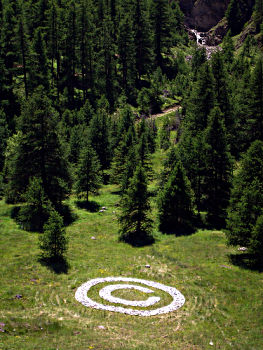 It is interesting to see how far Creative Commons licenses have gone, and as interesting to note how much work there is to do in order to make free licenses enter everyday's world.
It is interesting to see how far Creative Commons licenses have gone, and as interesting to note how much work there is to do in order to make free licenses enter everyday's world.
Netzpolitik reports that Al Jazeera put their video footage from the war in Israel under a CC-BY license, and that is great news indeed. It goes to prove how important free licenses are. In this conflict where so little footage is available, because journalists are not allowed to film, I find it fantastic that a news network, which primary goal should be to inform, allows others to use and reuse their information. The information is also of a critical nature, and although news networks are probably used to doing this, to engage in long conversations about what footage can be bought/used/reused would probably harm the quick pace at which this information should be made available. So kuddos to Al Jezeera for doing this, I can only wish more news networks and information sources would do so.
On the other end of the free license spectrum, I stumbled upon a completely different aspect of how people understand copyright while surfing on MakeTechEasier. I must say the last words in this post, which read:
Note: I have taken a lot of time and effort to write up this tutorial. You are free to link to this post, but please do not copy the whole article to your blog/website. THIS IS A COPYRIGHTED MATERIAL.
caught my attention. Especially this comment, which states:
I hope you don’t mind. i have added this as a howto on my webpage, and linked it back to you.
So I followed the link, and ended up on Dave Field's post about the same topic and there again, another line caught my attention:
The Writer has actually copyrighted his material, something i would never personally do, as its counter Open source [...]
The interesting thing here is the discrepancy between the intent (be more like Open Source
) and the way copyright is understood (I would never copyright my work
). At the time I wrote the commentary, the blog did not have any license information. As such, copyright in its strictest sense was enforced by default.
That is where there is so much work to do. Most people (and I don't blame them, it took me a hell of a lot of time to understand this copyright/free licenses stuff) are using the legal terms wrongly. A free license does not make the "copyright" disappear and you don't have to really "copyright" something since "copyright" _is_ there as soon as you are the author of anything. Of course, you can add a copyright on something provided there are no existing rights. But few people actually know that as long as there is no copyright/license information, any content should be presumed as heavily copyrighted. And few people know that "Open Source" does not necessarily mean dropping the copyright altogether, but rather making sure that the strings attached to the copyright allow better use and reuse of contents. It's interesting that the author of the MakeTechEasier post felt he had to add a warning at the end of his post. In an ideal world, everyone would know that since the source of the tutorial is clear (ie. he signed his post) his copyright should be respected.
And I guess it is our duty, as "open source" or "free content" advocates, to make these things clear and make sure that people understand tham. Hard task if any.
On a more personal note, I am glad and a bit proud that the blog's author decided to use a CC license for his blog after I wrote my commentary, and I can only hope one thing, is that he will spread the word ;-).
